AI and the Upleveling of Knowledge Work Over Centuries
Mohit Rohatgi is a seasoned leader in corporate strategy and product @Amicus, Learneo (F.K.A Course Hero) & Eaze.
Effective knowledge transfer is the critical underpinning of how societies have adapted, evolved, and transformed throughout time. Stories and lore were the first mechanisms for transmitting critical information across generations, marking the beginning of 'tribal knowledge'. Whether it was religion communicated through the Bible, folklore shared to define morality, or speeches relayed across nations to bring shared context, stories from older generations to the new kept the compounding of knowledge building for centuries.
The Rise of Media
However, something changed in the 1600's with the development of mechanisms to communicate more effectively to the masses through news, mail, and messenger routes. This marked a more efficient means of information dissemination that enabled the masses to learn critical information and the dynamics at play politically, economically, and culturally.
This circulation of information led to a significant increase in the accumulation of tribal knowledge. A byproduct of more efficient information dissemination was a broad up-leveling of the starting line of knowledge, enabling more of the masses to contribute to society.
The Rise of The Internet
With the advent of the internet and the shift from Web 1.0 to 2.0, we witnessed a massive sea-change, specifically the evolution of podcasts, blogs, and social media that demarcated the rise of the creator economy. Suddenly, anyone wanting to learn about a profession could watch relevant podcasts, take free online courses from top universities, and access tools to start honing their skills. People wanted to build their own brands, largely by making domain knowledge ubiquitous (e.g. Graham Stephan for real estate, Miss Excel for analysis, and Lenny Rachitsky for product management). This marked a big change in "tribal knowledge," democratizing access to a high caliber of relevant, current information that was historically relegated to the minds of a few expert individuals in each space.
Imagine if you were interested in becoming a venture capitalist. You could start with the following:
20VC Podcasts: Listening to Alfred Lin articulate how he built his investment thesis on DoorDash, Brad Gerstner (Altimeter) on investing in a downturn, or Drew Houston (Dropbox) discussing competitive dynamics with the big tech giants.
A16Z Blog: Get live coverage of core thematic trends that venture capitalists care most about and review updates on top companies in each space they look at.
Maven, Intro, and SuperPeer: Directly speak with top domain experts and learn through highly structured cohort-based courses from the best.
The magnitude of tribal knowledge transferred from one generation to the next continued to materially compound with the advent of the internet. This gave way to a much stronger starting-line for new entrants.
So what's next?
AI-Enabled Knowledge Transfer
The next step is a revolution in leveraging machine learning to understand the core behaviors, best practices, and actions of the top players in a field and translating those insights into dynamic, actionable guidance for new users.
Cresta is one such company that does this for call centers. Specifically, Cresta provides an "AI coaching tool" for new sales agents that learns from the top salespeople in the organization and helps redistribute those understandings as actionable insights for the masses. It understands the context of a new agent's flaws and dynamically provides hyper-relevant suggestions gleaned from top performers while they engage with the counter-party.
Some other facets of knowledge work where this type of redistribution of insights could be compelling include:
Growth Teams
For any growth PM or designer, imagine having a system that could contextually provide the best onboarding, offboarding, UI/UX growth tactics gleaned from assessing millions of successful examples in the context of the page or flow they are building.
The Growth Design team has built a massive arsenal of case studies that dive into luminary companies and how they've optimized specific parts of their funnel (e.g. Duolingo for gamification, Linkedin for notifications, Amazon purchase UX).
There are thousands of nuggets embedded within each of these that are enormously valuable to the next person trying to build or optimize a specific flow. But the only way today to glean insights is to manually go through each flow and leverage individual cognition to try to grasp best practices. If a growth team had a tool that had codified all of these and could tell them how to optimize what they were building—whether it's a landing page, offboarding flow, gamification elements, or onboarding—there could be enormous value garnered. Someone starting their first growth role would immediately leverage years of data-driven insights gleaned from ruthless experimentation by the highest caliber talent. Again, a tool like this would effectively elevate the starting line of knowledge work in this sector.
Writing
We've seen the massive adoption of LLM's like GPT-4 that have marked the genesis of thousands of startups auto-generating copy, headlines, blog posts, etc. One could imagine taking this a level further, verticalizing around specific categories. The model could ingest writing guidelines, processes, and best practices from the top writers in a domain and redistribute those practices as actionable insights to the next writer. For example, if you're an investment analyst, you could have a tool that autogenerates text or suggests prompts to fit the vernacular of top caliber analysts. If you're building an investment thesis, the tool could have codified the key tenets of the best analyst reports and then, in context, told a new user if they're missing something in their new reports.
If you're in PR, the tool could leverage data injected from millions of press releases to optimize the verbiage of your press releases. The same is true for marketing, sales, product, legal, etc. Domain-specific writing models trained on the best content in an area could mark another advancement in the starting line for new entrants.
Again, each of these examples depicts a strong up-leveling of knowledge work. The next creator, growth team, marketer, or analyst with access to such tools would effectively have started at a higher starting line than the same person years prior.

